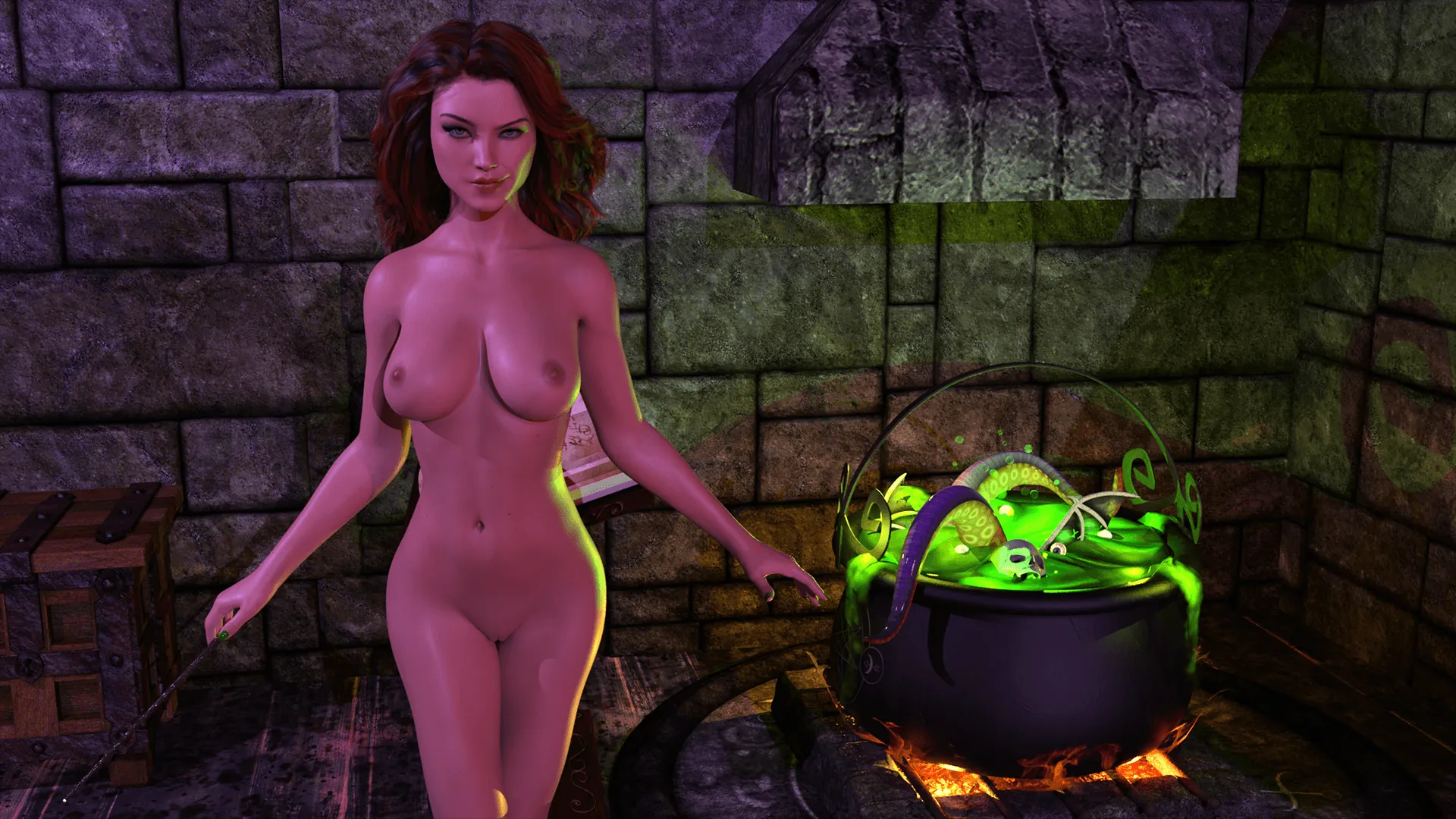
Play Come Home
Come Home review
Master every scene, relationship, and mechanic in this indie casual experience
Come Home is an indie casual game that launched in early access on October 15, 2021, developed and published by R.J. Rhodes. This free-to-play title offers players an engaging experience centered around building relationships with various characters through meaningful interactions and progression systems. Whether you’re new to the game or looking to optimize your playthrough, understanding the core mechanics, character dynamics, and scene unlocking requirements is essential. This guide covers everything you need to know about navigating Come Home’s relationship system, maximizing affection gains, and experiencing all the game has to offer.
Understanding Come Home’s Core Mechanics and Relationship System
Ever found yourself completely absorbed in a game’s world, only to hit a wall because you can’t figure out how to get closer to that one intriguing character? 😤 I certainly have. That moment of frustration, of clicking through every dialogue option with no progress, is exactly what the Come Home affection system is designed to avoid. This indie gem revolves around the beautifully simple idea that genuine connection is the key to unlocking its entire narrative. Your journey isn’t about defeating bosses or collecting loot; it’s about building trust, sharing moments, and gradually peeling back the layers of the people you meet. 🏡
At its heart, the Come Home progression system is an elegant chain reaction: you build affection, which unlocks scenes, which deepens your understanding, which in turn allows you to build even more affection. It’s a satisfying loop that makes every interaction feel meaningful. I remember my first playthrough, I spent a good hour just trying to figure out how to get past Alex’s initial reserved demeanor. I was doing all the “right” things—talking, giving gifts—but I was missing the crucial element of time. This game taught me that sometimes, you just need to be present. Let’s break down exactly how this all works so you can master every relationship. 💖
How the Affection System Works in Come Home
Think of the Come Home affection system as the game’s heartbeat. ❤️ Every meaningful action you take pumps life into your relationships, moving the story forward. It’s not a hidden meter you need to guess at; the game provides clear, intuitive feedback. When you gain affection, you’ll see subtle visual and audio cues—a character’s smile might widen, their text color might shift, or you’ll hear a soft, positive chime. These are your signposts, telling you you’re on the right track.
So, how to gain affection in Come Home? It’s wonderfully multifaceted, reflecting the complexity of real-world friendships. The primary methods are:
- Meaningful Conversations: This is the bedrock. Go beyond the surface-level chat. Ask follow-up questions, remember details they’ve shared previously, and choose dialogue options that show empathy and understanding. It’s not about picking the “correct” answer, but the one that feels true to the character you’re engaging with.
- Shared Activities: Each character has preferred hobbies and hangouts. Joining them for these activities is a massive affection booster. I learned this the hard way when I kept inviting the bookish Sam to loud parties; it was only when I started joining them for quiet reading sessions at the library that our bond truly began to flourish. 📚
- Completing Tasks: Characters will sometimes ask for small favors or help with personal projects. These are golden opportunities! They’re not just chores; they’re gestures of trust. Completing them shows you’re reliable and care about their needs.
The magic of the Come Home progression system is how it gates content. You don’t have access to every scene from the start. Instead, scenes unlock at specific affection thresholds. It’s a structured yet organic way to guide you through the narrative. For instance, you might need to reach “Friend” status with a character before they feel comfortable inviting you into their home, unlocking a whole new set of locations and interactions. This creates a natural, rewarding pace for your relationships.
Pro Tip: Don’t spread yourself too thin early on. Focus on building a strong connection with one or two characters first. The scenes you unlock with them will often provide you with insights or items that can help you with others later!
To give you a clear overview, here is a breakdown of the key characters and what makes them tick. This table is your cheat sheet for planning your social strategy. 🗺️
| Character | Preferred Locations | Key Affection Activities | Notable Scene Unlock Threshold |
|---|---|---|---|
| Alex | Park, Coffee Shop | Deep conversations, helping with errands | Opens up about family at “Close Friend” level |
| Sam | Library, Quiet Corners | Reading together, discussing philosophy | Shares personal writing at “Confidant” level |
| Riley | Arcade, Music Store | Playing games, listening to new music | Invites you to a band practice at “Good Friend” level |
| Morgan | Community Garden, Kitchen | Gardening, cooking meals together | Teaches a secret recipe at “Trusted Friend” level |
Character Interaction Methods and Scene Progression
Mastering Come Home character relationships is all about understanding that each person is unique. A one-size-fits-all approach will leave you with a lot of shallow acquaintances and very few deep connections. The game brilliantly encourages you to be observant. Pay attention to what they talk about, where they spend their time, and how they react to your choices. This is the core of the Come Home gameplay mechanics.
Your daily routine in the game world is your canvas for painting these relationships. 🎨 The clock is always ticking, and characters have their own schedules. You might find Sam at the library in the afternoon but at the observatory at night. Learning these patterns is the first step to efficient relationship building. This is a crucial part of any Come Home scene unlocking guide—you can’t unlock a character’s late-night heart-to-heart if you’re always in bed by 9 PM!
The Come Home progression system is deeply tied to these interactions. Let’s map out the typical flow:
- Initial Contact: You meet a character and have basic, polite conversations. The goal here is to learn their name and a few surface-level interests.
- Building Rapport: You use the information you’ve gathered to engage in their preferred activities. This is where you start hitting those early affection thresholds.
- Scene Unlocks: Reaching a new threshold triggers a unique, often longer, narrative scene. These aren’t just cutscenes; they’re interactive moments that define your relationship. This could be a walk home in the rain, a shared meal, or a moment of vulnerability. These scenes are the payoff for your effort.
- Deepened Connection: After a major scene, new dialogue options and activities will open up. The character will reference your shared experience, and the cycle begins again at a deeper, more intimate level.
I can’t overstate the importance of paying attention during these unlocked scenes. They often contain clues for how to gain affection in Come Home more effectively with that character, or even with others. For example, after unlocking a scene where Morgan confides in you about their love for rare spices, you now have the perfect gift idea for them for the next in-game week!
Maximizing Relationship Growth with Each Character
Now for the practical part: how do you optimize your time to build beautiful Come Home character relationships without it feeling like a grind? 🤔 Based on my many, many hours (and a few failed playthroughs), here are my top Come Home relationship building tips.
First, specialize your days. Don’t try to be everyone’s best friend in a single 24-hour cycle. The game’s calendar is generous. I found it effective to dedicate a “Morgan Day” where I’d follow their schedule—helping in the garden in the morning, cooking lunch together, and then perhaps visiting the market. The next day could be a “Riley Day.” This focused approach yields much faster progress than bouncing between four characters and only making small talk with each.
Second, embrace repeatable interactions. While the big scene unlocks are the main goals, don’t ignore the small, daily interactions. Greeting a character every day, asking how they’re doing, and engaging in their minor preferred activities (like watering plants with Morgan or commenting on a book Sam is reading) provide a steady, reliable trickle of affection points. This is the foundation that makes the big leaps possible.
Here’s a quick list of efficient strategies for how to gain affection in Come Home:
- Carry Universal Gifts: Always have a few low-cost, generally liked items in your inventory, like a good cup of coffee or a fresh pastry. You never know when you’ll run into someone and want to give them a little boost. ☕
- Chain Your Errands: Plan your route through the game world to naturally cross paths with multiple characters. If you know Alex is at the park and Sam is at the library nearby, you can efficiently see both without wasting in-game time traveling back and forth.
- Listen Actively: The best Come Home relationship building tips often come from the characters themselves. They will outright tell you what they like, what they need, and what they’re worried about. Your job is to remember and act on it later.
- It’s Okay to Say No: You are not obligated to say yes to every request. If Riley invites you to the arcade but you’ve planned a quiet evening with Sam to unlock a crucial scene, it’s perfectly fine to politely decline. Your time is a valuable resource; manage it wisely.
Ultimately, the most important tip is to be patient and genuine. The Come Home affection system rewards consistency and authenticity. Rushing through dialogues or trying to min-max your interactions can ironically slow you down, as you might miss the subtle cues that lead to the deepest connections. Relax, immerse yourself in the world, and let the relationships unfold naturally. The scenes you unlock will be all the more rewarding for it. ✨
Frequently Asked Questions
What’s the fastest way to gain affection with a character?
There is no single “fastest” way, as it depends on the character. However, the most efficient method is to combine activities. For example, don’t just give Alex a gift; give them a gift and then engage in a deep conversation about a topic they love. Combining multiple affection-gaining actions in a single interaction is the key to rapid growth.
I’m stuck and can’t seem to unlock new scenes. What should I do?
First, double-check that you’re engaging with the character in their preferred locations and activities. If you’re still stuck, take a break from that character for a day or two in-game. Sometimes, progressing another character’s story can trigger new global events or dialogue options that will help you move forward with the one you’re stuck on.
Is it possible to max out relationships with every character in one playthrough?
Yes, it is absolutely possible! The game’s calendar provides enough time, but it requires careful planning and time management. Don’t get discouraged if it doesn’t happen on your first try; part of the fun is focusing on different relationships in subsequent playthroughs to see how the story changes.
Do my choices in conversations permanently lock me out of content?
Generally, no. The Come Home affection system is forgiving. A poorly chosen dialogue option might slow you down slightly for that interaction, but it won’t ruin a relationship forever. You can almost always recover lost ground through subsequent positive interactions. The game is designed to be a positive experience about connection, not a punitive one.
Come Home offers a unique casual gaming experience that rewards players for investing time in character relationships and understanding the game’s progression systems. By mastering the affection mechanics, learning each character’s specific interaction requirements, and strategically managing your time within the game world, you can unlock all available scenes and experience everything the game has to offer. Whether you’re interested in Adrian’s gaming sessions, Mrs. Mills’ workplace dynamics, or Tammy’s gym-centered storyline, each character provides distinct content and interaction opportunities. The key to enjoying Come Home is approaching relationships methodically while appreciating the game’s casual, laid-back design philosophy. Start with the character that interests you most, gradually expand your interactions, and enjoy the journey of building meaningful connections within this indie experience.

































